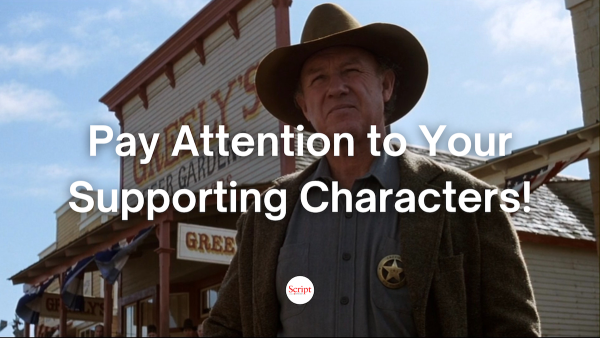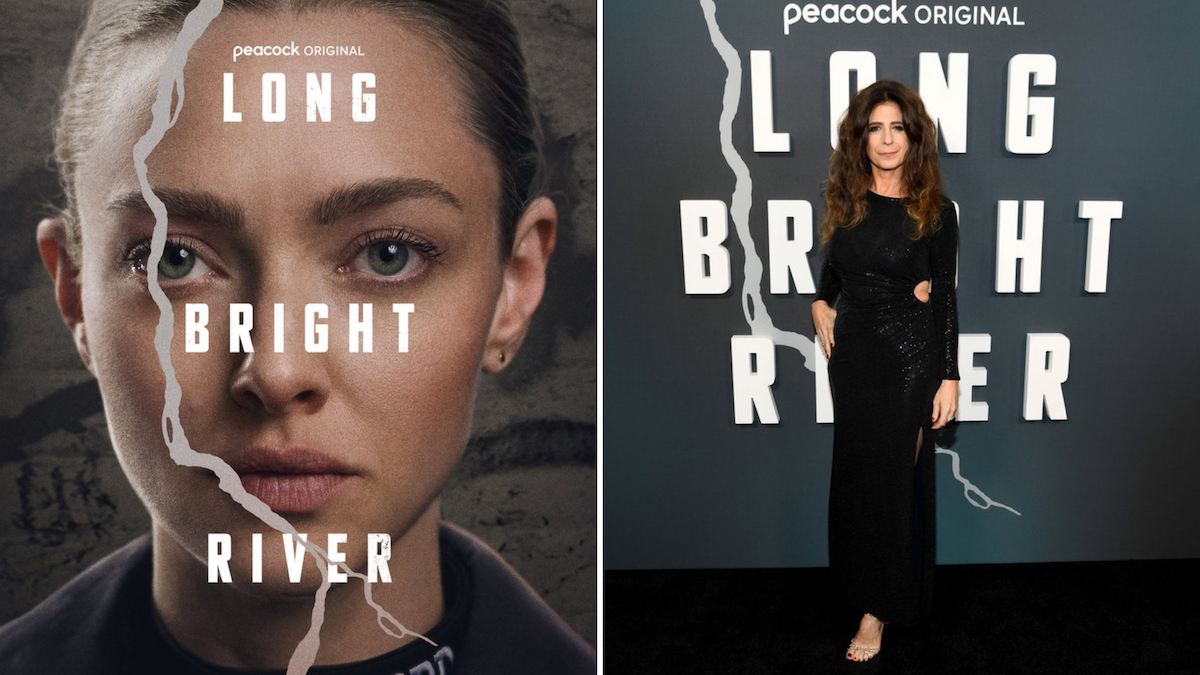Spit Takes: Quick Look at Writing & Selling a TV Pilot
TV and feature-film writer Stephany Folsom arms you with a little TV-writing knowledge so you can manage your expectations about writing and selling a TV pilot.
From the beginning of summer to the start of fall, the networks decide whether or not they are going to buy the pilot you wrote. It’s the start of television development season, so it seems like the perfect time to talk about writing and (hopefully) selling a TV pilot.
Many writers these days are frustrated with the limited opportunities in the feature business so they are transitioning into television. Don’t get me wrong, television writing is fun and amazing, but don’t jump in without a full grasp of what’s involved in getting something on the air. There’s no such thing as an easy paycheck. Hopefully, I can arm you with a little TV writing knowledge so you can manage your expectations, know what you’re up against and boldly go forward to write and sell your first pilot.
A few years ago, I had the good fortune (and foresight) to secure rights to a property, which, through connections I already established, led to many meetings, including one with the head of TV at a major agency. He imbued me with a lot of good information about setting up my first TV pilot, but my attention drifted when he began to rattle off the difficulties of getting network approval and showrunners attached. I have a tendency to blackout if someone only presents difficulties without solutions. Admittedly, this is not the best way to go about things, but I’ve found that cultivating the traits of denial and delusion in the face of adversity has worked for my career in Hollywood.
That said, a newbie writer (i.e. no experience in features or working on a show) should not expect to sell his/her original TV pilot. Now, hold on, don’t blackout on me. I’m not saying it’s impossible. I’m telling you to have realistic expectations when writing your first pilot. The most important thing is to focus on making your pilot the best writing sample it can be. Don’t worry about the show bible or the pitch. No one will read or hear those things at this early stage of your career. Your original pilot will most likely be a writing sample that will hopefully establish fans of your work – because it’s so damn good.
With more writing experience under your belt, you can be in a better position to realistically sell a show, but this is where things get dicey again. From my experience, selling a TV show has way more hoops to jump through than selling a feature script. This is where being slightly delusional and in denial comes in handy.
It also helps if your pilot has a killer concept. What do the powers-that-be consider a killer concept? Your pilot is based on a novel, a board game, a produced film, a video game, a true story, or you’ve uncovered some untapped area of law enforcement, the medical field or politics. I’m not saying you have to write a pilot about one of these things, I’m just sharing what has worked for me and will most likely increase your chances of getting your original pilot read and sold.
In addition to a killer concept, you’ll need a production company, showrunner or major agency backing your pilot. A network typically won’t consider your work without one of those things in your corner. I don’t mean to be a downer, but these are the network biases, politics and obstacles you will face in setting up a pilot. If you can convince the networks and buyers to consider your pilot without “professional” backing, go for it and tell me how you did it. You rock.
So are you still with me or have you completely blacked out? Hopefully, you’re still with me, and you have a little more knowledge about what you can expect from the pilot you’ve just written (or are thinking about writing). Now go boldly forward and write some f-ing television.
- More Spit Takes articles by Stephany Folsom
- TV Writing: What’s Wrong with ‘Arrested Development’
- Behind the Lines with DR: Creating a TV Show While Managing Actors’ Egos, Part 1
- Story Structure: Linking Your Series Dilemma to Your Pilot Dilemma
Learn more about the craft and business of screenwriting from our Script University courses!
Stephany Folsom was raised in the mountains of Colorado and attended film school in Los Angeles. After graduation, she had many day jobs until she landed a gig working for news outlets and non-profits, producing short documentaries around the world. Eventually growing tired of life on the road, she landed back in Los Angeles and delved back into fiction writing. Her script 1969 A SPACE ODYSSEY: OR HOW KUBRICK LEARNED TO STOP WORRYING AND LAND ON THE MOON made the Black List in 2013. Since then she’s written on Marvel’s THOR: RAGNAROK, Lucasfilm’s STAR WARS RESISTANCE series, and most recently co-wrote the Academy Award-winning TOY STORY 4. Currently Stephany lives in Los Angeles with her husband and precocious mutt, where she is a consulting producer and writer on Amazon Prime’s LORD OF THE RINGS. In her spare time, she is showrunning and writing the series adaptation of Brian K. Vaughan’s PAPER GIRLS with Plan B, Legendary, and Amazon Studios. Twitter: @StephanyFolsom





